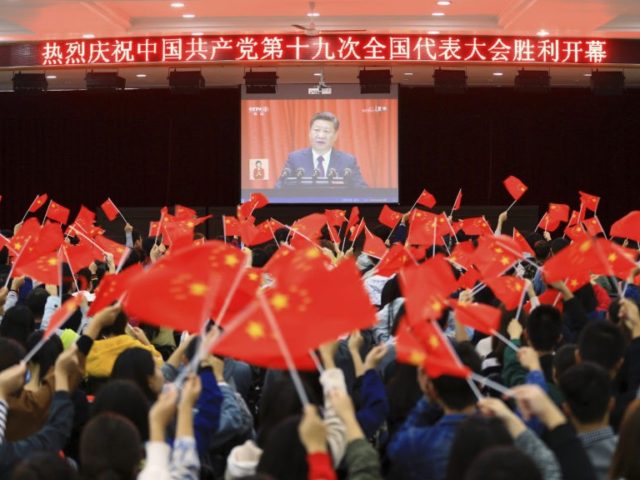The U.S. National Institutes of Health (NIH) recently announced that it dismissed or lost to resignations 54 of its scientists amid the ongoing Trump administration probe to weed out suspected Chinese spies from universities and laboratories across the United States.
NIH investigators focused on rooting out grantees who fail to disclose financial ties to foreign governments have identified 399 scientists “of possible concern” as part of a probe launched in August 2018. The NIH is a component of the U.S. Department of Health and Human Services (HHS).
So far, 54 of the identified scientists have lost their jobs, Michael Lauer, NIH’s head of extramural research, revealed during a virtual meeting with a senior advisory panel on Friday. Currently, the agency is actively investigating 189 scientists at 87 institutions, the majority (over 80 percent) of whom are Asian males in their 50s benefitting from Chinese financial support.
Over 75 percent of the 189 scientists had active grants totaling $164 million, Lauer revealed. Chinese institutions provided hidden funding for 93 percent (175) of those scientists, he added.
Trump administration officials have accused Beijing of trying to steal research for a vaccine or therapies to combat the Chinese coronavirus.
“It’s not what we had hoped, and it’s not a fun task,” NIH Director Francis Collins proclaimed, referring to the ongoing investigation, according to Science Magazine.
Collins described the data as “sobering.”
Of the 399 scientists “of possible concern,” the FBI detected 120 (30 percent), while their institutions flagged 44, data provided by Lauer showed.
NIH determined that the vast majority, over 60 percent, of those scientists had foreign ties. Foreign ties investigations conducted by the NIH came out “positive” for 256 (63 percent) of the 399 and “negative” for 76 (19 percent). The NIH deemed the remaining 72 (18 percent) as “pending.”
According to Lauer, the fact that over 80 percent of the scientists targeted by NIH investigators are Asian “is not surprising” because “that’s who the Chinese target” in their foreign talent recruitment programs.
Nevertheless, not all of the scientists targeted by Beijing are ethnic Han Chinese.
Slightly over 70 percent (133) of the 189 scientists currently under investigation failed to disclose foreign grants, while more than half refused to reveal receiving a talent award, the NIH official noted last Friday. NIH investigators accused the others of failing to disclose ties to international companies (17) and patents obtained in foreign countries (7) as well as committing peer review violations (9) and breaking other agency rules.
The NIH blasted China’s Thousand Talents Program, noting that Beijing has used it as a vehicle to exploit its access to U.S. research labs and academic institutions. FBI officials have reportedly described the program as a form of “non-traditional espionage.”
In 2018, the U.S. Department of Justice (DOJ) launched the China Initiative to combat the espionage threat post by Beijing. U.S. authorities have already arrested and charged several scientists linked to the nefarious Thousand Talents Program.
The ongoing NIH probe “has roiled the U.S. biomedical community, and resulted in criminal charges against some prominent researchers, including Charles Lieber, chair of Harvard University’s department of chemistry and chemical biology,” Science Magazine reported on June 12.
“To be clear, this is not about the Chinese people as a whole, and it sure as heck isn’t about Chinese Americans as a group,” FBI Director Christopher Wray proclaimed in February. “But it is about the Chinese government and the Chinese Communist Party.”

COMMENTS
Please let us know if you're having issues with commenting.